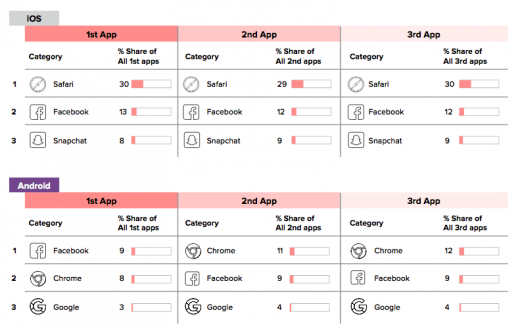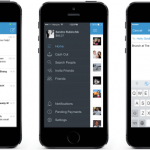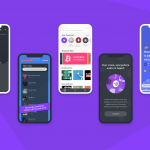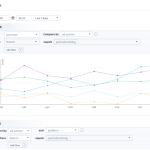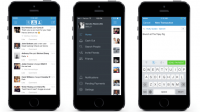Report: Mobile users start with social apps, then move on to browsers and search
More apps are being used per session, further fragmenting digital media time.

Verto Analytics in a new report identifies key digital consumer trends. Among them, the company reports consumer time with digital media has “stabilized,” but the distribution of time has shifted.
Time with social media sites and apps has declined slightly, and time spent with mobile gaming apps is flat. News and weather apps have lost engagement, while entertainment (e.g., Netflix), shopping and lifestyle apps have gained. Overall, Verto says user digital time and attention are further fragmenting.
The mobile-specific observations in the report are focused on two related trends: multitasking and a sequenced pattern of app usage Verto calls “consumer mobile journeys.” Verto defines multitasking as the usage of multiple apps during a single smartphone session, not necessarily overlapping usage. The company now says that “the daily number of consumers who engage with more than four apps per mobile device session has increased by 10 percent, from 121 million to 143 million adults.”
Verto also maps the sequence of apps used by smartphone owners, after they unlock their devices, and finds some differences between iPhone and Android users.
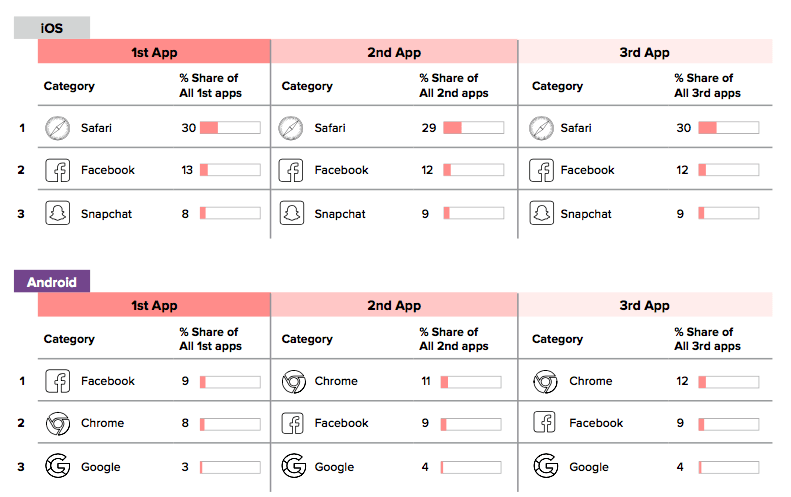
At the highest level of abstraction, the behavior is the same for both groups: social apps are typically opened first, followed by browsers, and then a broad category called “utilities and tools.” However, the graphic above shows the slightly different sequences for iOS and Android users.
The first app opened when a user unlocks her screen is typically social media for Android users but more often a browser for iPhone users. Android users then turn to browsers and the Google search app. The report doesn’t drill into what people are doing on the browser or in the search app, but it’s probably safe to assume that activity is directed or intent-based: a search query (including on Safari) or direct navigation to a known site.
After these categories, Verto says that roughly 10 percent of users launch utilities and tools apps, which include a wide assortment of things such as the App Store, Google Play, contacts, the clock app and others. Verto adds that entertainment apps (e.g., Netflix, YouTube) and mobile games “play an important yet non-central role in consumer mobile journeys.” But rarely do users commence a mobile session with these apps.
The company says that understanding this sequence, and where consumer time is concentrated, “will help brands and agencies especially as they design touchpoints, plan media spend, and make other key revenue decisions.” However, there are limited new insights (at least in the report), with social media and search being the key session starters for many users — we knew that.
In a way, these categories exemplify the two longstanding mobile use cases: “killing time” and lookups with directional intent.
Marketing Land – Internet Marketing News, Strategies & Tips
(17)

